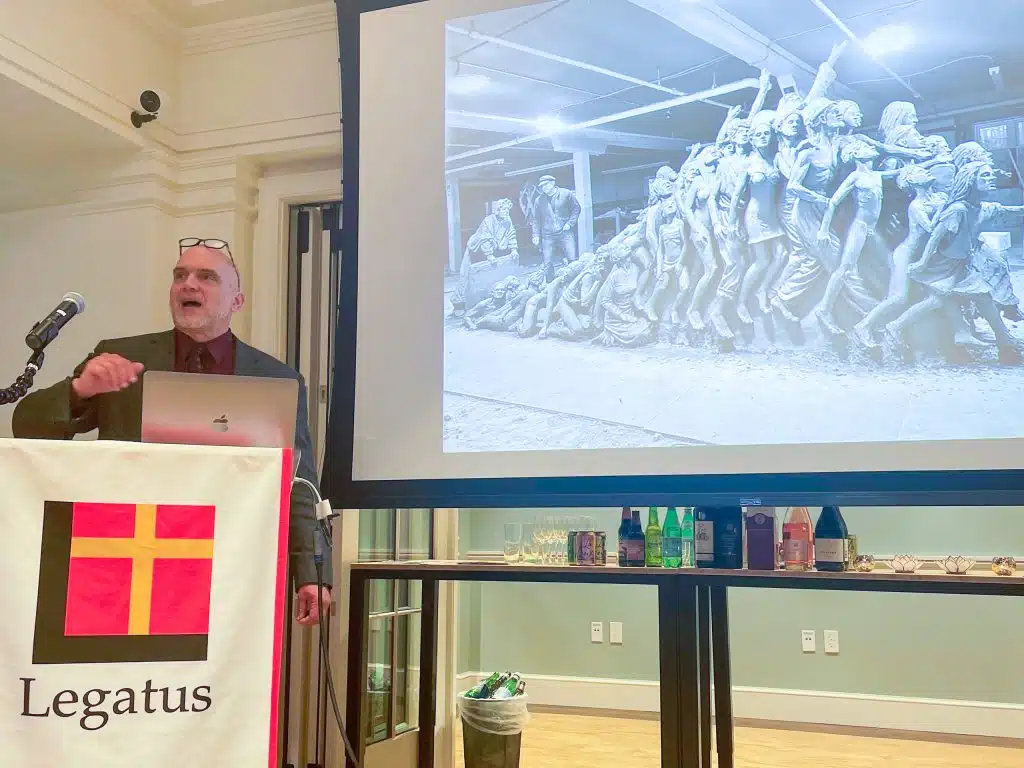WASHINGTON — Pro-lifers mourned the death of Nat Hentoff, 91, who died Jan. 7, as a rare combination of Jewish atheist, political liberal and pro-lifer.
“It’s not surprising an atheist would be against abortion, because all he knows is life,” said Maria McFadden Maffucci, president of the Human Life Foundation and editor of its journal, the Human Life Review.
Maffucci said her father, the New York City-based organization’s founding president and journal editor, got in touch with Hentoff more than 30 years after the longtime jazz scribe had written columns in the Village Voice about the “Baby Doe” cases in which two infants were denied life-saving treatment because of their physical disabilities. “I think that woke him up,” Maffucci said of Hentoff.
He also became one of the first recipients of the foundation’s “Great Defender of Life” award in 2005.
“As an atheist, Nat took much heat from his fellow liberals and rigid fundamentalists among the ‘free thinking’ crowd for standing against abortion,” said a Jan. 7 blog posting by Wesley J. Smith for the National Review, and himself a past winner of Great Defender of Life award.
“Nat Hentoff was an indefatigable writer, a man whose deeply ingrained integrity compelled him to willingly lose good friends and professional opportunities if that is what it took to remain steadfast on behalf of causes he thought to be right,” Smith said. “We will not see his like again.”
Hentoff also wrote a weekly syndicated column, “Sweet Land of Liberty,” on First Amendment issues. In 1988, he wrote a biography of the then-archbishop of New York, John Cardinal O’Connor: At the Storm Center of a Changing American Catholic Church.
Other recognition given to Hentoff for his pro-life activities were the Bob Considine Award, by St. Bonaventure University, for having “exhibited the exemplary moral and ethical performance,” and the Pro Vita Award given by the Diocese of Brooklyn.
On a 1992 PBS public affairs program, “Life and Choice after Roe vs. Wade,” one panelist expressed surprise that a “liberal” would be against abortion. “I believe in what used to be called the seamless garment,” Hentoff replied. “It can also be called a consistent ethic of life. I am against capital punishment. … I am pro-life all the way.”
That same year, Hentoff tried to quiet hecklers at Cooper Union, a college in Manhattan, who had prevented then-Pennsylvania Gov. Robert Casey from giving a speech, “Can a Liberal Be Pro-Life?” He appealed to respect for liberal traditions of free speech, comparing hecklers to Stalinists and fascists and by arguing pragmatically that they would have a better chance of influencing Casey by entering into debate with him. His efforts went for naught.
Rabbi Marc Gellman, of “God Squad” fame with the late Msgr. Thomas Hartman, said he had been influenced on the abortion issue by Hentoff.
In 2002, Hentoff was one of many to file a friend-of-the-court brief on behalf of the Pro-Life Action League’s Joseph Scheidler, who had been sued for damages under the Racketeer Influenced and Corrupt Organizations Act, or RICO, for organizing protests outside abortion clinics, arguing Scheidler had a First Amendment right to free speech. Other briefs were filed by the Catholic Peace Fellowship, People for the Ethical Treatment of Animals, the Southern Christian Leadership Conference, St. Joseph of Medaille Sister Helen Prejean and actor Martin Sheen.
“We asked him to write for a symposium, ‘Pro-Life in a Time of Obama,'” Maffucci said. “They would come via fax and they would be typewritten, with notes in the margins. After my dad died (in 1998), we didn’t know anyone who wrote his articles on a typewriter.”
The Human Life Foundation assembled a book in 2003 of some of Hentoff’s early writings, including the Baby Doe cases, “Nat Hentoff: Insisting on Life.” The book can be downloaded free through Jan. 17 at www.humanlifereview.com/hentoff-memorial/.
“I would say things like ‘God willing — if “God’s” OK to say,'” Maffucci recalled. “He told me once that he wished he did believe.”
Maffucci recounted she had learned at one point that one of the Babies Doe, a girl who needed surgery for spina bifida but had been denied it, was alive decades later. “She got the surgery. She’s limited, but she’s happy,” Maffucci said. “I called him to tell him the news. He said he didn’t know that, but that made his day.”


